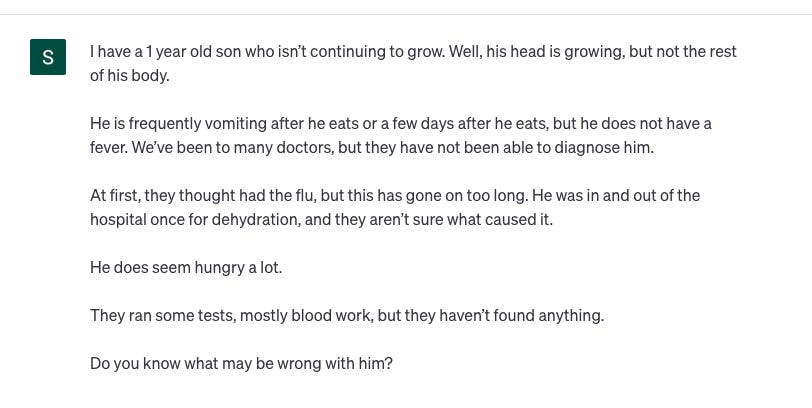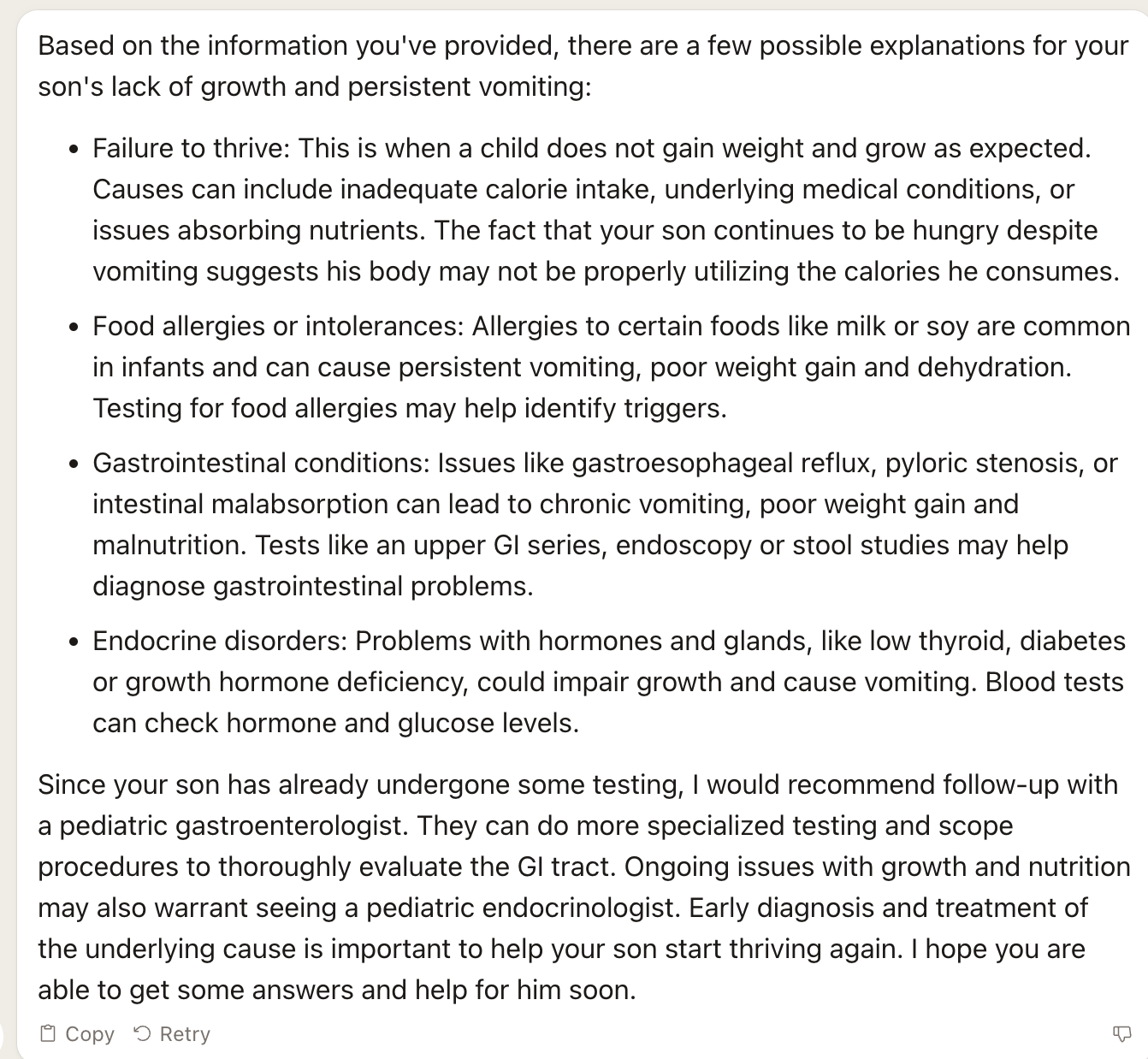Could ChatGPT have diagnosed my son?
Multiple doctors couldn't find the answer. ChatGPT got close on its first try. Claude suggested the needed test. Pi got right to the point.
On Monday, there was an article in the USA Today about a mother who used ChatGPT to find what turned out to be a diagnosis for her son’s source of chronic pain, something doctors had tried to do for 17 months.
The story hit home, and it’s something I’ve been thinking about for some time.
In the early 2000s, my newborn son start started experiencing flu-like systems shortly after he was born. We took him to the doctor. It was the flu, they said.
A couple months later, this is still going on. He just hasn’t kicked the flu, they said.
In January, he ended-up in the ICU due to dehydration. He was released a few days later; just dehydrated, they said.
This went on in the spring. We tried many more doctors, may different blood tests. He’ll be fine, they said. ‘Lots of flu going around.
The flu doesn’t normally arrest a person’s growth over a 6 month period, but OK…
In late April, my friend, Dr. David Glass, told me I needed to do more to figure it out, that something was wrong. He recommended a well-known pediatrician in New York City. That pediatrician referred us to another one. Diagnosis. Surgery. Problem resolved.
In a follow-up appointment, I was expressing some candid frustration that many previous doctors couldn’t figure it out. Don’t be frustrated, he said. He pointed out that the birth defect was so rare (1 per 5,000-10,000 live births) that most community doctors would never see it in their lifetime. He looks for these things because he sees more of the hard cases, he said.
What if every doctor could see the hard cases? What if every doctor could have an assistant who has seen not only hundreds of hard cases but millions of them and suggest possible diagnoses to the hard cases?
What if every doctor could have an assistant that read every medical journal related to their specialty, including ones released this week?
What if every doctor had access to a language model such as ChatGPT that might give it some ideas?
I wondered what would have happened 15 years ago if I gave it a simple prompt, so I tried —
It answered —
At the time, I wouldn’t have known if one of these was more likely than another, or even if any of them made sense, because I’m not a doctor. But a doctor would if I passed it along. If I was a Physicians Assistant, I could probably screen some of them out before they got to the doctor.
Since I’ve already been through this, one stood out – pyloric stenosis. Why? Because my son was diagnosed with dueodinal stenosis. I wondered if it was the same thing. Not identical, but similar.
(It even corrected my spelling — dueodenal — and knew what I was talking about).
Of course, we don’t know how this might have played out. Would the “stenosis” suggestion been taken seriously be the doctor? Would he even have read my chat, or did he hear too many media stories about how ChatGPT hallucinates and shouldn’t be used? Would he fear that she would no longer be a critical thinker if she opened ChatGPT? Would he have ordered tests? I’m not doctor, but it seems pretty helpful to me.
And imagine if the chat bot was not ChatGPT, but a bot that was specifically trained on medical information, perhaps even specific to a medical focus area (pediatrics, heart disease, cancers, etc). Wouldn’t it be even more effective at assisting a doctor with a diagnosis? It’s hard to believe that it wouldn’t have helped those community doctors diagnosis my son a lot faster.
It seems we are closer to every doctor in the world having access to an assistant who consult all the medical knowledge in the world in an instant. It seems we are closer to the days when a lot fewer parents will have to spend months worrying and trying to get a diagnosis.
PS. How did Claude do? Claude suggested the scope procedure that discovered the problem.
How about Inflection’s Pi?
Related







